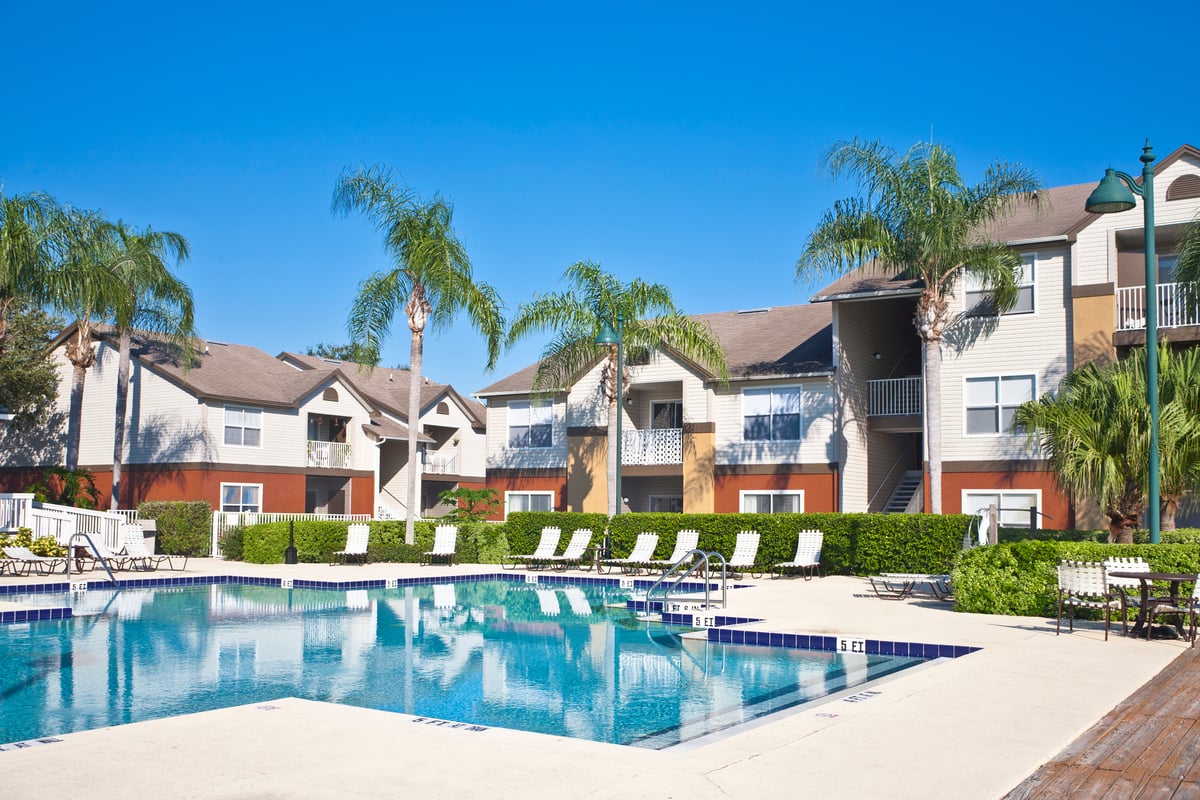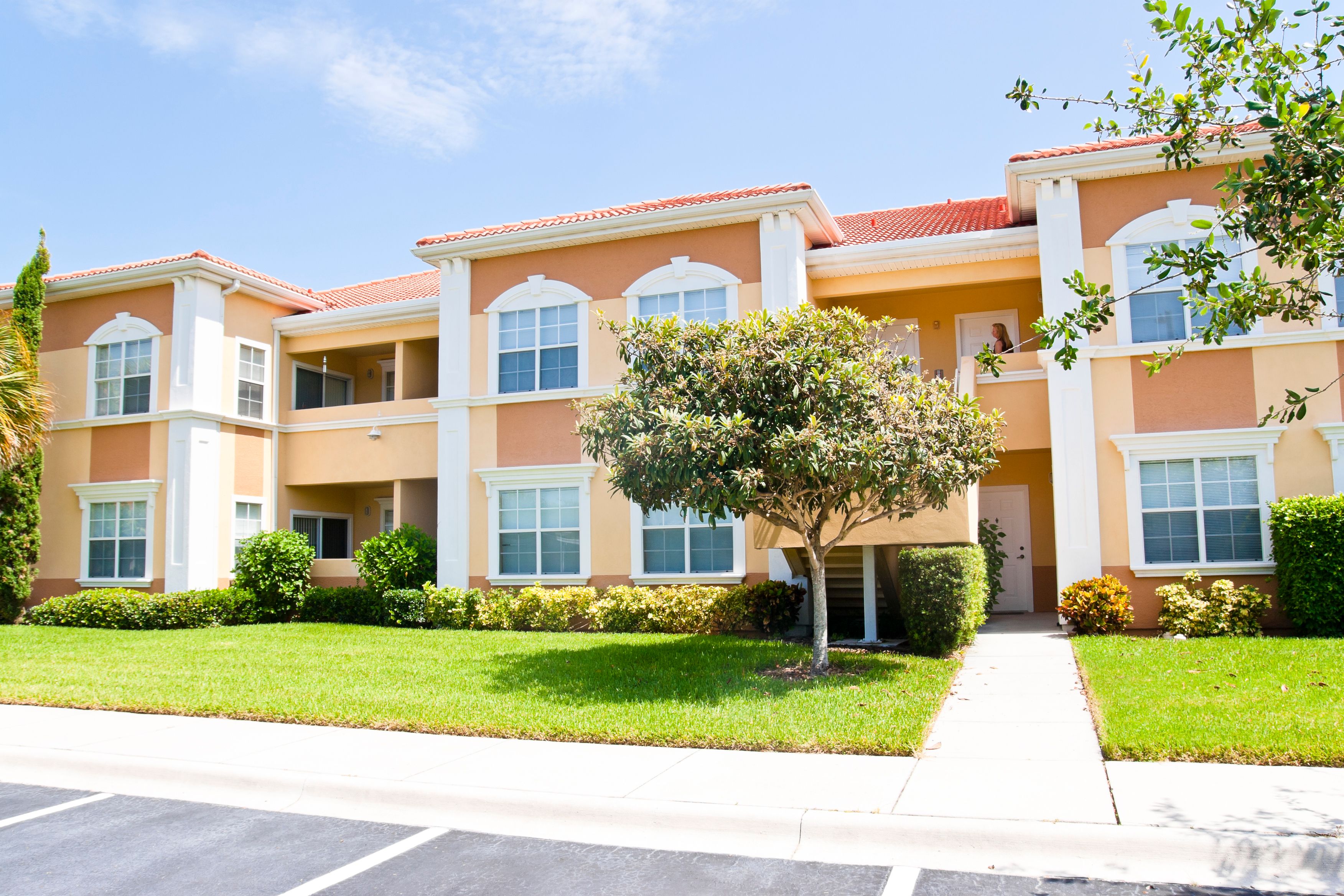It's almost impossible for companies out there to avoid being impacted by COVID-19 in some way, even if they aren't stricken by the pandemic directly. That has investors worried and not unreasonably. However, Wall Street has a habit of painting situations with too broad a brush, often punishing companies across entire industries when events occur as if they were all equal or were going to be affected equally.
Here are three real estate investment trusts (REITs) that have proven themselves through tough times before, and that are worth more involved consideration today -- especially if you're retired and seeking income.
1. AvalonBay Communities: A roof over your head
The efforts being taken to slow the spread of the coronavirus pandemic are likely to push the world into a recession. That's not good news, of course, but there are some things that even an economic downturn doesn't change -- like the need to have a roof over your head. That's where real estate investment trust AvalonBay Communities (AVB +2.65%) comes in. And while the roughly-4% dividend yield may not seem huge, it is the highest the yield has been in roughly a decade.

Image source: Getty Images
Yes, the yield spiked higher during the 2008-09 recession, so there's a chance investors are getting in early. However, the more notable issue is that the dividend wasn't cut during the last downturn, showing the resilience of the REIT's business and its commitment to returning value to investors via dividends. Moreover, its funds from operations (or FFO, like earnings for an industrial company) payout ratio was a reasonable 66% in 2019, giving it plenty of leeway to cope with further adversity.
Today AvalonBay owns roughly 300 apartment communities across 11 states. It has about 20 communities under development. That, by the way, is a huge differentiator here. AvalonBay has a long history of actively managing its portfolio. It frequently sells older assets to pay for acquisitions when it can find good deals, or, more often, to fund ground-up construction. It believes that it can achieve higher returns building from scratch, and doing so keeps its portfolio fresh. It's pretty good at what it does, with a focus on high-barrier-to-entry markets and higher-end apartments.
COVID-19 is going to impact AvalonBay to some degree. For example, social distancing guidelines have led it to stop construction at some sites, and it is preparing to help tenants that have trouble paying their rent in the near term. However, occupancy is high at around 96% in late March, and it has ample liquidity (around $1.8 billion). Now is a good time for dividend investors to take a closer look at this apartment owner -- it has increased its dividend at a compound annual rate of around 5.5% over the past decade, easily beating inflation.
2. Federal Realty: An incredible dividend record
Next up is Federal Realty Investment Trust (FRT +0.00%), a REIT which has increased its dividend annually for more than five decades. Over the past 10 years, the annualized dividend increase has been a solid 4.5% or so, roughly 50% greater than the 3% historical inflation rate. The yield, at around 6%, is at levels last seen during the great recession. There's only one problem: The REIT owns retail assets. That's in the heart of the COVID-19 storm since non-essential stores have been shuttered and many aren't paying rent.
That's not good news, of course, but Federal Realty isn't your average retail REIT. For starters, it is highly focused on owning premier properties in top-tier markets, with just about 100 assets in eight major markets. Moreover, it has been working to create massive mixed-use properties, in which people can work, play, and live. So it also has nearly 3,000 apartment units in the mix. These mixed-use properties account for around a third of its top line and provide some diversification to its revenue. The rest of its properties usually have financially strong anchor tenants, like grocery stores (many of which have remained open).
AVB Dividend Yield data by YCharts
Moreover, the REIT's payout ratio in 2019 was roughly 66%, which provides ample room for it to deal with COVID-19 issues and still maintain its dividend. Yes, Federal Realty will have tenants that don't pay rent in the near term, but it shouldn't have any problem taking the hit in stride.
3. W.P. Carey: A diversified approach
The last name up is W.P. Carey (WPC +0.58%), one of the most diversified REITs you can buy. For starters, its portfolio includes industrial (24% of rents), office (22%), warehouse (21%), retail (18%), self-storage (5%), and "other" (the rest). On top of that, roughly a third of its revenue is derived from outside the United States, largely from Europe. You would be hard-pressed to find another REIT that has a portfolio even close to that.
Meanwhile, W.P. Carey has increased its dividend annually for more than 20 years. Although dividend growth has been modest over the last few years (largely because of a corporate makeover that saw the closure of an asset management business), over the past decade annualized dividend growth was in the mid-single-digit space. The current yield, at around 7%, is the highest it has been since the last economic downturn. The FFO payout ratio, meanwhile, was around 90% in 2019. That number sounds high, but there's a very good reason: W.P. Carey is a net-lease REIT, which means that its tenants are responsible for most of the costs of the properties they occupy. To put it simply, W.P. Carey can simply sit back and collect rent. And with a lower-cost operating model, it can afford a higher payout ratio.
The bigger picture here is that this diversified REIT only has modest exposure to retail, which is expected to be hard hit by COVID-19-related issues. And about half of its rents come from areas (industrial and warehouse) that are expected to actually be in high demand because of COVID-19. So W.P. Carey actually appears to be relatively well-positioned right now. It won't get through this period unscathed, of course. But it should be able to muddle through relatively well while still paying investors.
No easy answers
Investing isn't simple and never has been, even though the long bull market that ended earlier this year may have lulled some into believing it is. Often, however, the best times to invest are when others are worried about the future, which sounds like the current market environment.
In these times, it pays to stick with the best-run companies. For retired investors looking to maximize current income, REITs AvalonBay, Federal Realty, and W.P. Carey are historically well run REITs worth deep dives. You may find that one or all of them end up in your portfolio.








